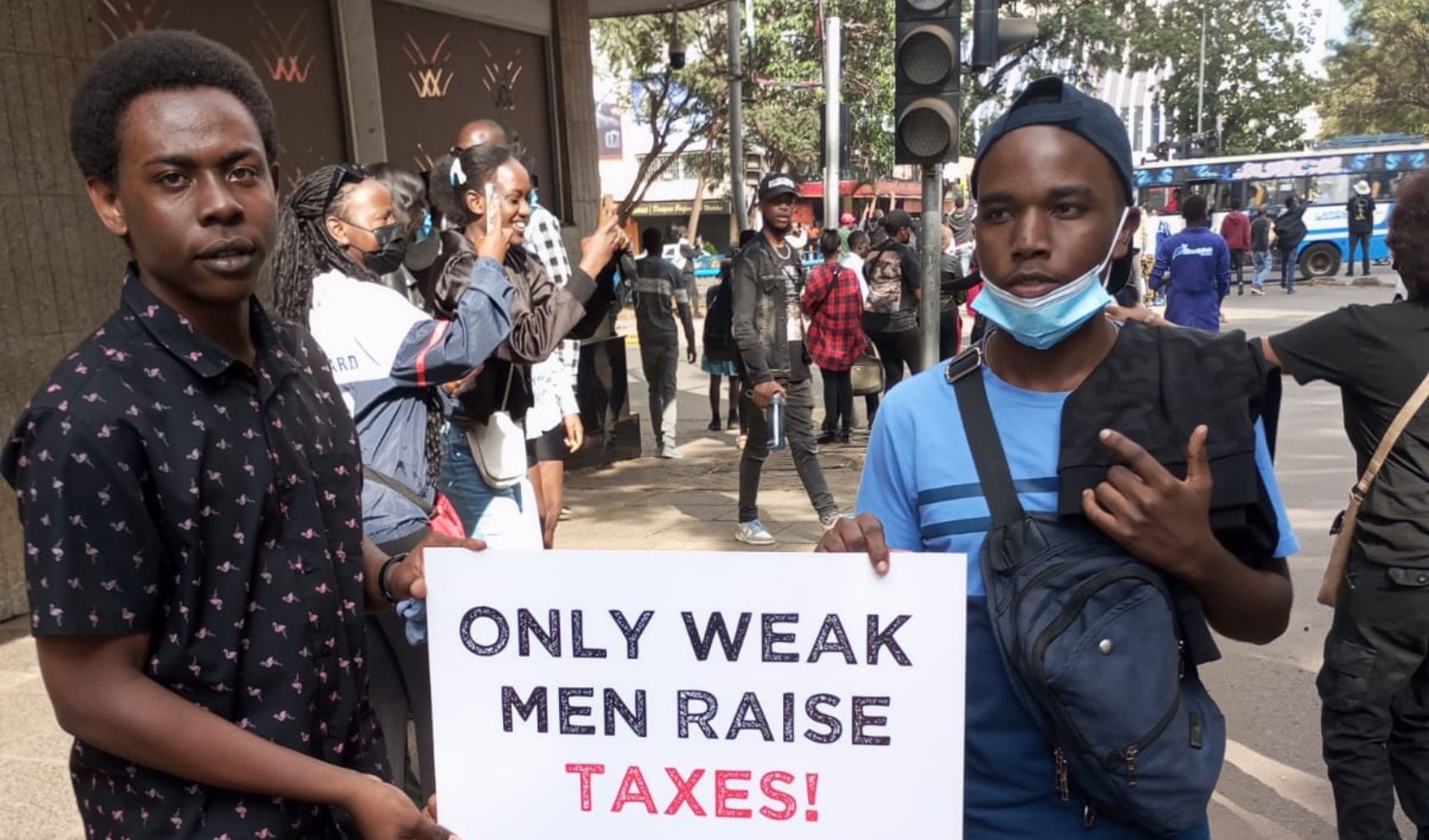Today, June 18, 2024, the heart of Nairobi beat with the footsteps of hundreds of determined Kenyans, clad in black, marching towards parliament. They came together in a powerful display of unity against President William Ruto’s proposed tax hikes. From millennials to Gen Zs, from men to the humble Mama Mboga, the streets echoed with their collective cry: “Hatuki hii Finance Bill.”
As the crowds gathered in Nairobi’s bustling business district, the message was clear. Signs waved high with the words “Do not force the taxes on us” and chants of discontent reverberated through the air. Among them was 29-year-old Rara Eisa, who captured the sentiment of many when she said, “I am tired. The prices of everything have gone up, life is no longer affordable
Despite the peaceful nature of the protest, the response from the authorities was swift and severe. Police officers lobbed tear gas into the crowds, dispersing the demonstrators and arresting at least a dozen. The scenes of chaos and the sight of black-clad youth fleeing the gas clouds highlighted the stark contrast between the citizens’ peaceful intentions and the government’s heavy-handed approach.
The protest, dubbed “Occupy Parliament,” was a coordinated effort, sparked by an activist’s leak of MPs’ contact details. This call to action urged citizens to bombard their representatives with calls and messages, demanding they shoot down the proposed Finance Bill 2024. The bill includes contentious provisions like a 2.5 per cent motor vehicle tax and the reintroduction of VAT on bread and other essential commodities that would increase the cost of living.
President Ruto ascended to power in 2022 with promises to revive the economy and uplift the hustlers. His policies, including increased income tax, higher health insurance contributions, and doubled VAT on petroleum products, have drawn sharp criticism. Analysts warn that these measures could stifle consumption and hurt the economy, but with a strong parliamentary majority, the bill is likely to pass.
However, the voices of the people cannot be ignored. Today’s protest was a testament to the power of unity and the will of the younger generations to fight for a better future. The sight of mama mbogas standing shoulder to shoulder with youth and professionals sent a clear message: the people of Kenya demand a government that listens to its citizens and addresses their concerns with empathy and fairness.
As parliament prepares to debate the final version of the bill before the June 30 deadline, today’s events serve as a stark reminder of the growing discontent within the nation. The people of Kenya have spoken, and their message is one of resistance against policies that threaten their livelihoods.
The protest highlighted a significant shift in the political landscape, with millennials and Gen Zs stepping up to take a stand. Their participation signals a new era of activism, where the younger generation is more engaged and ready to challenge the status quo. The energy and determination of these young Kenyans were palpable, transforming what could have been a routine day in the city into a powerful movement for change.
In the coming days, the government’s response will be critical. Will they continue to ignore the cries of their citizens, or will they engage in meaningful dialogue to address the economic hardships that so many are facing? The nation watches and waits, hoping for a resolution that acknowledges the struggles of its people and prioritizes their well-being.




